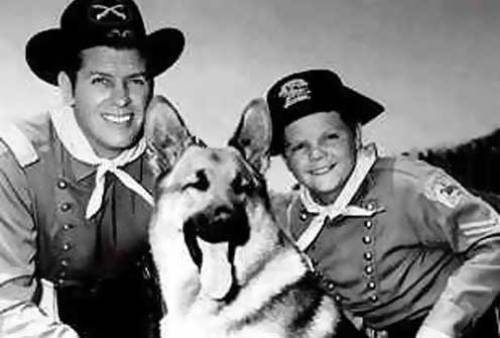
16 FebRin Tin Tin and the fate of the 20th century dog actor
 There are just not enough dog biographies aimed at readers over the age of five. Thank goodness for animal-obsessed journalist Susan Orlean's new entry into the canon: Orlean is the writer of Rin Tin Tin: The Life and the Legend. This entry into the canon of great dog biographies tells the story of how a puppy orphaned on a battle field in World War I grew up to be one of the most famous dog actors of the Twentieth Century. Perhaps, thanks to Westminster's newly crowned “Best in Show” dog, German Shepherd Rumor, there will be a revival of interest in good old Rinty.
There are just not enough dog biographies aimed at readers over the age of five. Thank goodness for animal-obsessed journalist Susan Orlean's new entry into the canon: Orlean is the writer of Rin Tin Tin: The Life and the Legend. This entry into the canon of great dog biographies tells the story of how a puppy orphaned on a battle field in World War I grew up to be one of the most famous dog actors of the Twentieth Century. Perhaps, thanks to Westminster's newly crowned “Best in Show” dog, German Shepherd Rumor, there will be a revival of interest in good old Rinty.
Orlean’s book touches on some rarely discussed moments in American pet history–like when people were encouraged to donate their dogs to the armed forces during World War II. Dog drafting–now their's away to get us out of these wars. She also examines how Americans’ views of dogs changed as the century progressed and families migrated from farms to suburbs and cities. To a dog-obsessed nerd like me, this sounds pretty much as interesting as things can get.
In this interview with Orlean, she talks about the main reason that Rin Tin Tin was unlike dog actors today: He couldn’t talk. Today, Youtubers are obsessed with Mishka the singing dog and the dog who wants bacon. And let’s not forget the talking pooches in Up (which includes my all time favorite bit of canine movie dialog: “I was hiding under the porch because I love you.”) Rin Tin Tin's acting had to happen outside of the aural realm. But that was par for the course: in those days, human actors couldn’t talk either. Like the labrador sitting in the passenger seat: everyone was on the same level.
Says Orlean: “In the ’20s, people attributed a kind of superhumanness to dogs. And in silent film, dogs and people had the same exact ability to speak, which was zero. If you watch those Rin Tin Tin films, his performance is in a certain way more convincing — there’s nothing missing, whereas with people, speech is missing. It seems much more artificial.”
But then movies became talkies. Suddenly, every Boston Terrier had to be method actors. Those were bleak times.



